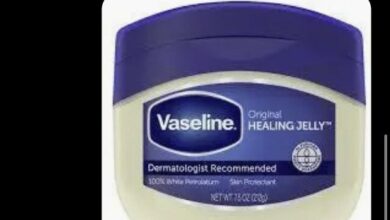Last call for iconic Midtown NYC bar Neary’s

Neary’s, the wonderful pub that Jimmy Neary launched at 348 E. 57th St. in 1967, closed its doors on Friday for the last time. Not surprisingly, it’s been called the end of an era. But while I’m sad to lose Neary’s fabled Irish coffee and lamb chops, I couldn’t care less about the era.
An “era” of one kind or another ends every day in New York City, but the sooner we quit bawling our eyes out for an irretrievable, inaccurately recalled past, the better off the eight million of us will be.
Eras supposedly ended when the Brooklyn Dodgers moved to Los Angeles; when electronics stores gave way to the World Trade Center; when Studio 54 closed; when the Cross-Bronx Expressway destroyed the borough’s southern half; when music shops vanished from West 48th Street; and when Lord & Taylor gave up the ghost to WeWork.
Now, lamenting long-gone emotional landmarks is entirely appropriate as a matter of the heart. Sentimental slob that I am, I miss Nedick’s every time I pass the corner of Broadway and West 34th Street.
What isn’t appropriate is to hijack every incidental loss in service of a broader, counterfeit, nostalgia: Namely, the notion that the city once was more humane, colorful and civilized than it is today.
Oh, for the days of stickball on the street and a Greenwich Village that truly was bohemian! Or the downtown club netherworld of the 1970s and ’80s!
An essay by Roger Friedman on his Showbiz 411 site could stand for an entire sociocultural perspective: “Time is marching on in New York,” Friedman wrote of Neary’s shutdown. “All the great places are gone, or on the verge of closing. The heyday of authentic is almost over.”
He isn’t wrong that lots of beloved buildings and businesses are gone. But one person’s “authentic” is another’s tired old business that ran out of steam, as most every business eventually does.
Sentimentalizing New York’s past is to sanitize the actual past, which wasn’t remotely as wholesome or pure as the late, great writer Pete Hamill wanted us to believe — not even in his beloved, 20th-century Brooklyn of hard-working Irish, Italian and Jewish second-generation strivers.
The actual Gotham of the 1930s, for example, wasn’t the white ties-and-tails fantasy depicted in movies made 3,000 miles away in California. The disconnect wasn’t only economic.
A few blocks from my Brooklyn childhood home, my grandfather recalled with shame, my fellow paisanos taunted their few black neighbors with cheers for Mussolini’s mechanized conquest of Ethiopia’s ragtag army.
In 1967, when Jimmy Neary poured his first pint, the city was entering a “doom loop” spiral that was all too real, unlike today’s merely imagined one. Middle-class residents were fleeing, race riots gave us a “long, hot summer,” and Times Square’s decline into depraved anarchy was underway for those willing to recognize it.
Everyone claims to miss the 1960s’ wealth of charming, Neary’s-like watering holes and jazz clubs where musicians were mostly black. But that New York City was much more severely segregated than it is now — and not just on Sutton Place, the monied enclave from which Neary’s drew much of its clientele.
A popular Pinterest page called “35 Incredible Found Color Photos Captured Everyday Life in New York City in the 1960s” is incredible in a way the title didn’t intend. I found exactly one black face in images of teeming Fifth Avenue, the Grand Central area and Times Square.
I’ll miss Neary’s as much as anyone. I cherished the Irish comfort that flowed from Jimmy and from visages on the walls of Hugh Carey, Bill Clinton and other power types who actually went there more than once.
It was a mecca for customers who enjoyed dressing up for hamburgers and fish and chips. I never went there without wearing a suit or at least a navy blazer.
It was the site 44 years ago of my first date with the woman who’s now my wife. When the newspaper unions went on strike in 1978, I went to Neary’s at 10 p.m. to drink alone in a red leather corner booth — which was still there last week — before my midnight-to-dawn picketing shift.
I miss Neary’s old neighborhood as well, where I lived for 13 years and watched Greta Garbo take a sidewalk stroll from her East 52nd Street apartment.
But historians, bloggers and all who deplore New York’s supposedly wretched present state need to get a life.
Long live Neary’s! Yet wallowing in fake memories will do us no good facing the current-day challenges of rampant street disorder, lack of housing and government dysfunction.
To prevail, we need to put the past behind us — and believe the best is yet to come.




